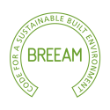-
Courses

Courses
Choosing a course is one of the most important decisions you'll ever make! View our courses and see what our students and lecturers have to say about the courses you are interested in at the links below.
-
University Life

University Life
Each year more than 4,000 choose University of Galway as their University of choice. Find out what life at University of Galway is all about here.
-
About University of Galway

About University of Galway
Since 1845, University of Galway has been sharing the highest quality teaching and research with Ireland and the world. Find out what makes our University so special – from our distinguished history to the latest news and campus developments.
-
Colleges & Schools

Colleges & Schools
University of Galway has earned international recognition as a research-led university with a commitment to top quality teaching across a range of key areas of expertise.
-
Research & Innovation

Research & Innovation
University of Galway’s vibrant research community take on some of the most pressing challenges of our times.
-
Business & Industry

Guiding Breakthrough Research at University of Galway
We explore and facilitate commercial opportunities for the research community at University of Galway, as well as facilitating industry partnership.
-
Alumni & Friends

Alumni & Friends
There are 128,000 University of Galway alumni worldwide. Stay connected to your alumni community! Join our social networks and update your details online.
-
Community Engagement

Community Engagement
At University of Galway, we believe that the best learning takes place when you apply what you learn in a real world context. That's why many of our courses include work placements or community projects.
Energy Policies
Energy Policy
The Energy Policy and the Climate Action Roadmap establishes energy reduction targets for the University and drives all energy conservation measures.
Energy Management Policy and Design Statement of Fundamentals
Heating and Cooling Policy
The Space Temperature Standards at the University of Galway.

I'm too hot or too cold
This page outlines what you can do to fix problems related to high or low temperature.
Check the room temperature
- The University of Galway maintains Space Temperature Standards that describe what temperature you should be able to expect from your work or study space. If your room does not meet those standards then it should be possible to solve the problem.
- Before you proceed, you should check the actual temperature of the room on a thermometer.
- Check your thermostatic radiator valve (TRV) or electric heating thermostat. It’s much better to turn a TRV or thermostat up one or two notches than to plug in an electric heater.
- Many radiators in the University have TRV’s. Look for them in the following places:
- On the top or bottom corner of the radiator
- In the hallway of your floor
- Electric heating? Thermostats are either on top or on the front.
- Many heating systems are fitted with weather compensation control. This monitors the outside temperature and controls the temperature of the water to radiators to avoid overheating. On a cold day when the outside temperature is -3ºC, the hot water temperature might be at 80ºC. On a mild day (say 12ºC) the hot water temperature might be at 40ºC. So if the radiators are warm rather than hot it may well be that the compensator is working correctly! This means your building will not get overheated.
- In cold weather, turn your TRV or thermostat up or down by a couple of notches each day until you find a temperature that’s comfortable.
- In hot weather, turn the thermostat down as far as possible, switch off all electric heaters at the wall and open windows to allow cooler air to circulate.
- Contact the Helpdesk
If these solutions don’t resolve your problem, you can contact the Estates Helpdesk. They will have the best idea about who in your building is responsible for heating, and will be able to implement changes to settings and heating provisions.
Government Policies
Sustainable Procurement at University of Galway
University of Galway is committed to implementing sustainable procurement across its portfolio of contracts and frameworks. Sustainable public procurement (SPP) requires us to consider the environmental, social and economic impacts of all purchases, and to clearly communicate our expectations to bidders and contractors. It requires changes to the entire procurement cycle: from budgeting and planning to tendering and managing contracts. This handbook provides guidance on each of these stages and examples of detailed criteria which can be inserted into tender documents.
Sustainable Procurement Handbook
New Builds at University of Galway
All new building design and refurbishments or vacant space fit-outs are built to sustainable standards have adopted sustainable design practices improving our energy consumption. The buildings and estates office has shown continuous innovation and support for energy-efficient design down through the years. A small number of examples include:
Exeed -(1000-x-400-px)-(850-x-400-px)-(3)-110x52.png)
University of Galway have been granted EXCEED funding by SEAI for the design of District Heating network for the North Campus serving Alice Perry, Cairnes, Moyola and the Research Building. It is hoped that the tender maybe issued in 2022 with works completed in 2023.
Building Research Establishment Environmental Assessment Method (BREEAM) 
The Goldcrest Student Accommodation building was designed to have a BREEAM Excellent rating and with a DEC cert of A3. The new phase 2 student accommodation is currently on track to receive the same accreditation.















